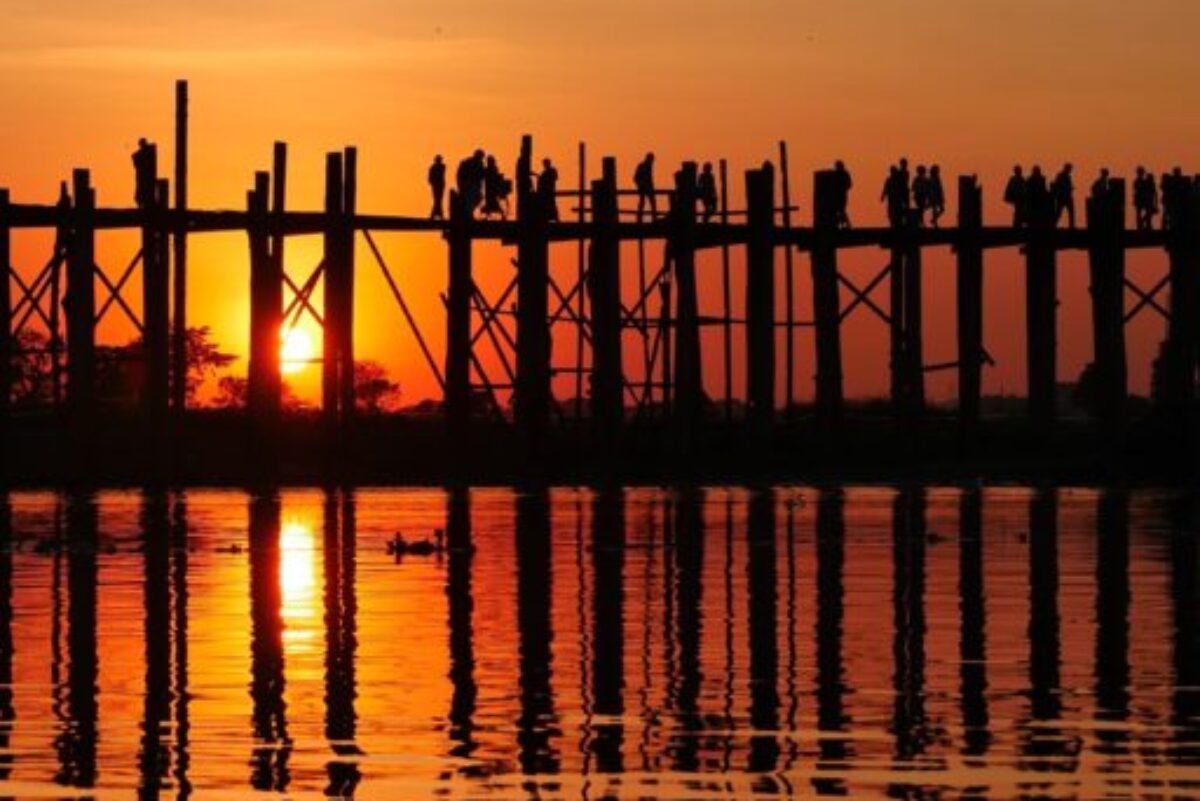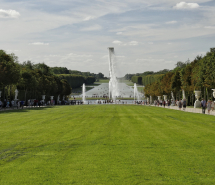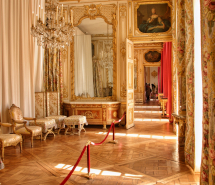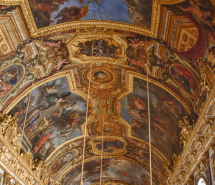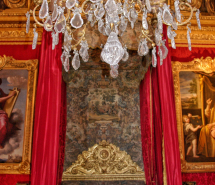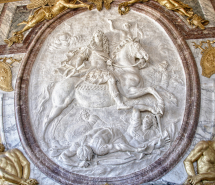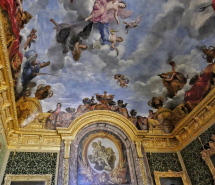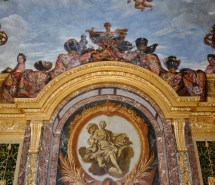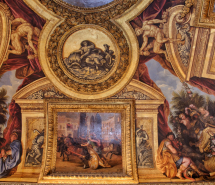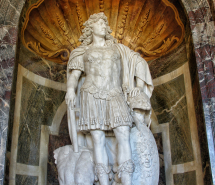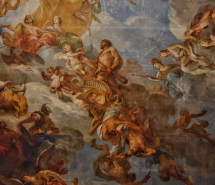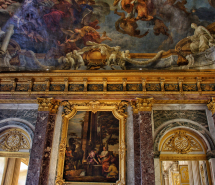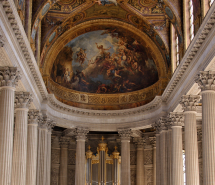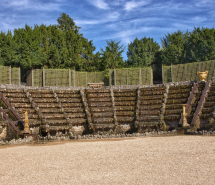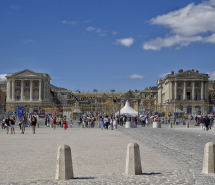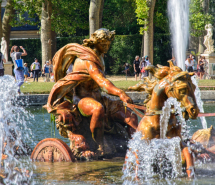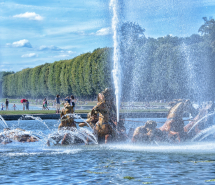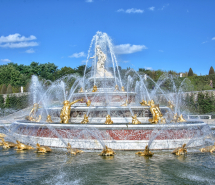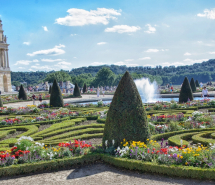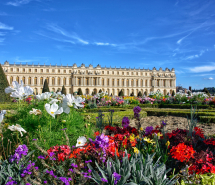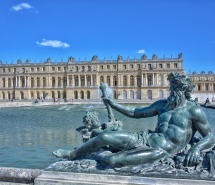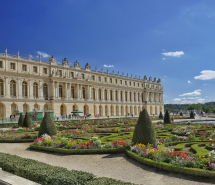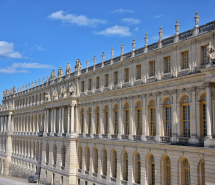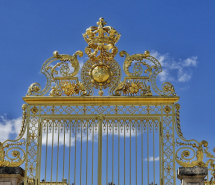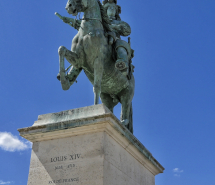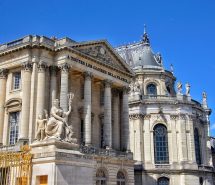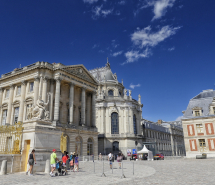When Louis XIV was a small boy he lived in the Palace which today is the Louvre. He would go to the countryside with his father, and stay in a small hunting lodge. That small lodge became the basis of the Versailles Chateau. Louis XIV built this opulent palace, filled it with art, luxury and imposed glory and power on its visitors. It was built to impress. The gardens and fountains were built simultaneously, and were part of the overall effect the Chateau was to have on its visitors. This palace inspired other greats such as Catherine and Peter to build their palaces in Russia, which we describe in earlier blog posts.
Versailles became a symbol of the height of aristocratic indulgences; Louis XIV often held parties here and invited the nobles to stay. By keeping them away from their estates and in the midst of luxury, Louis XIV reduced the power of the nobles and allowed himself to have more direct rule over France. The Palace allowed only the public rooms to be toured. There were mobs of people, so the vast majority of the pictures were the impressive ceilings found in the ante rooms, ball rooms, and why there was a bed in the public room (I asked myself). I guess the King had a bedroom suite installed to separate his throne room visitors (whose questions and answers were public knowledge) and those with whom he bestowed a more intimate friendship by meeting with them in his private rooms.
While the Palace was grand and luxurious, it was also impossibly expensive to maintain. Historians estimate that maintaining the Palace, including the care and feeding of its staff and the Royal Family, consumed as much as 25% of the entire national income of the country of France.
Which is why the French Revolution began at Versailles! (Albeit, a couple generations later)
In search of a solution to the serious financial crisis his government was going through, Louis XVI convoked a meeting of the Estates General in the spring of 1789, i.e. a meeting of the three orders – the Nobility, the Clergy and the wealthy business class. The wealthy business class were hoping for reforms. They were quickly disappointed and refused to submit to royal power.
The business class was aware of the success the American colonies had against the British Empire back in 1776. They joined forces with some of the clergy to comprise the National Assembly on 17 June 1789. The King opposed this Assembly by closing the room at Versailles, where they were meeting. Finding the doors closed on 20 June, the deputies went to a nearby gymnasium and took the famous Jeu de Paume Oath:
“We swear not to separate and to reassemble wherever circumstances require,
until the Constitution of the Kingdom is established and built on solid foundations.”
The founding event of French democracy, the Jeu de Paume Oath is the origin of the separation of powers and national sovereignty.
